We often think of cybersecurity as a negative—but it can help set your company apart from the competition as a core differentiator for your business.
By F12
You’ve probably heard plenty about the risks and challenges of cyber threats—particularly since October was Cybersecurity Awareness Month—but what about the opportunities? That’s right: cybersecurity offers opportunities. F12 CMO Devon Gillard recently sat down with CTO Calvin Engen and the Canadian Chamber of Commerce’s Senior Director of Digital Economy, Technology, and Innovation, Ulrike Bahr-Gedalia, to chat about how Canadian businesses can (and should) turn the cybersecurity narrative on its head and use security tools as a core differentiator when it comes to growth.
Bahr-Gedalia and the Chamber have been working closely with F12 on an initiative called Cyber. Right. Now., a campaign designed to promote awareness about the importance of cybersecurity for Canada’s small- to medium-businesses, and appeal to the Canadian government to invest in cybersecurity initiatives that would help support SMBs. Here are some highlights from their insightful chat.
What is Cyber. Right. Now.?
Bahr-Gedalia: Cyber. Right. Now. is an opportunity to demonstrate that Canada can be a global cybersecurity leader and one of the most secure countries on this planet. We created this opportunity back in June 2021, and, with the help of many Canadian cyber companies, we’ve identified the areas where Canada and its businesses need to improve in order for Canada to be a more stable and safe economy and nation, and to advance the cyber policy investment agenda. And with fantastic members such as Engen and F12, we’re getting there.
Why did F12 partner with the Chamber on this initiative?
Engen: Here at F12, we knew that we needed to be part of something that would provide perspective and visibility back to the government on what is happening in small- to medium-enterprises across Canada. We wanted to have an avenue to advocate for change, to better protect SMEs across the country, and be able to share what’s happening at the ground level.
How does Canada currently compare to other G7 countries in terms of innovation?
Bahr-Gedalia: We’ve done some index research, and our proposed funding ask of the government, $2 billion, is only 50% of several of our G7 peers. We looked at France, the UK, the US, and Germany. We realized we have a great opportunity to invest in our Canadian businesses, particularly the SME sector, for them to become better educated, secured, and have the tools and technologies in place, as well as the talent. It’s a global challenge.
How can cybersecurity be a core differentiator for your business if you’re an SME?
Engen: From a cybersecurity perspective, the supply chain is constantly under attack—from nation state actors, to competitors trying to disrupt companies, to individuals trying to extract money. And the challenge is that sometimes companies don’t think they’re an important enough aspect in the supply chain. They think they won’t be a target. But they certainly can be. I think most organizations can get away with being targeted for a couple thousand dollars in gift cards, or maybe even as fraud victims of $200,000—maybe a business could survive that. But where else could they have spent that money, if they had it back in the business?
The talent shortage is impeding many companies’ ability to grow their cybersecurity. What can Canadian SMEs do to attract and retain talented IT experts?
Bahr-Gedalia: Different talent and education systems can be good and advantageous. A lot of countries are a little more inclusive when it comes to pursuing tech. Canada is a multicultural country, but sometimes we might be a little bit hesitant when it comes to down to the visa and paperwork and experience from foreign countries. But when a hiring company is inclusive and it all comes together, it really creates the most beautiful and high-impact solutions.
Gillard: That’s a really positive view. America is vacuuming up our cybersecurity talent, but there’s international talent very eager to come to Canada and help contribute to our differentiation and success, if we’re open to it.
How can a business leader position their organization to capitalize on cybersecurity and play the long game?
Engen: It needs to start with leadership. If the leader of the business or the board makes cybersecurity a priority across the organization, that trickles down. Okay, they say, we’re going to make our cybersecurity different so that we stand out through doing these different things. You can go through CyberSecure Canada, get a badge, and make that marketable. You can stand head and shoulders above your competitors by indicating that you take security very seriously. Find a trusted advisor to help identify your company’s security infrastructure, and help you elevate it. Cybersecurity is a journey—it’s not a destination. It’s continually evolving.
What opportunity should Canadian businesses seize as a core differentiator?
Bahr-Gedalia: Canada can be a global leader in cybersecurity. It’s a fact. We should aim for number one. And this Cyber. Right. Now. campaign is promoting collaboration, whether with the government, other industry or business associations, or maybe chambers abroad: learn from them and see how you can implement what they know. The roundtable conversations can be beautiful and inspiring, but now we need to put these ideas into practice.
Are you a small- to medium-enterprise ready to turn cybersecurity on its head and start making it work for you? Do you want to join the Cyber. Right. Now. collaboration and push Canada to the forefront of the global cyber economy? Reach out to us today to learn how you can turn cybersecurity from a business requirement into a core differentiator.



